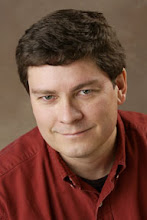Jill Stanek posted a story about a true Polish hero, Irena Sendler who was instrumental in saving nearly 2500 Jewish children from the Warsaw Ghetto during WWII. A truly amazing story and a beautiful woman.
At the end of her post, Jill made a comparison between this woman and activists within the pro-life movement:
Such a beautiful woman and story. Someday many in the pro-life movement, like sidewalk counselors outside abortion mills, will be similarly honored.
The comments section soon blazed.
I'm hoping here to add a perspective that adds some light, and a lot less heat.
In 1991 I walked the ground of the Warsaw Ghetto area for six weeks. Among the dilapidated remaining buildings, complete with bullet holes and other signs of combat, I saw continued anti-semitism, particularly against the synagogue where I was conducting computer training.
One summer, when I was 12, I saw enough of the concentration camps through B&W footage at a local college to know I didn't want to visit those camps when co-workers invited me to join them in 1991. Those who had visited the camps woke from horrible nightmares for weeks after.
Jill's post is a fallacious equivocation - a comparison between these two situations - the nightmare of the Warsaw Ghetto/Holocaust, and the genocide of the unborn.
They aren't the same. And we shouldn't paint them as such.
One could draw many comparisons, but the differences are primarily in the overwhelming despair and state imposition of the Holocaust and the distributive nature of the decisions made by millions of women for the genocide of the unborn. Each genocide has an incidious nature, but Jill's efforts, the amazing numbers of PRCs, the efforts of so many pro-life proponents in a land where people still have freedom to choose (with caveats), speaks to the light that shines brilliantly, whereas Europe was immensely dark at that time.
What makes Irena so special was her duty to save lives, at the continual extreme and imminent danger of losing her own.
While sidewalk counselors may be exposed to extreme hatred and potential violence, our rule of law still protects their rights as citizens, when all hope of such protection was missing in Poland at that time.
We should recognize Irena Sendler for her extreme dedication and sacrifice, but let us pray that things do not deteriorate to the point where such personal heroism is again necessary in the face of a state imposed genocidal solution.




 Courtesy of MileHiMama.blogspot.com
Courtesy of MileHiMama.blogspot.com
|